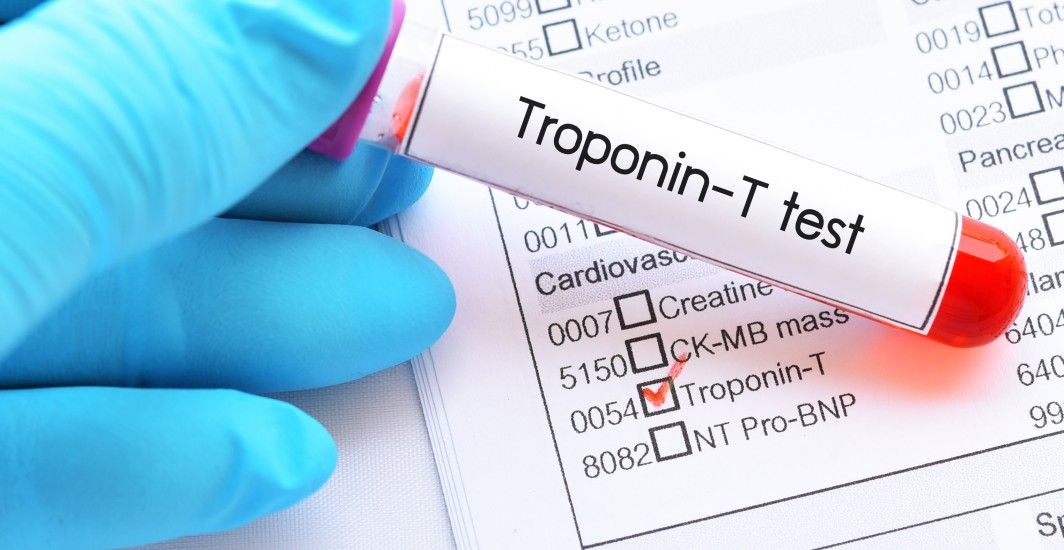General Health
LDH Test – Normal Range, Purpose, Procedure, and Results Interpretation
6 min read
By Apollo 24|7, Published on - 21 May 2025
Share this article
0
0 like
.jpg?tr=q-80)
The Lactate Dehydrogenase (LDH) test is a routine diagnostic procedure used to measure levels of LDH, an enzyme found in almost all the body’s tissues. LDH plays a vital role in energy production and is released into the bloodstream when cells are damaged. Elevated or decreased LDH levels can indicate several underlying health issues, including tissue damage, organ dysfunction, or even cancer. This test is essential in medical evaluations to help doctors diagnose and monitor conditions affecting the heart, liver, muscles, kidneys, and more.
Accessible and straightforward, the LDH test is widely used in both emergency and outpatient settings. By providing critical insights into cellular health and organ function, it allows for timely diagnoses and more effective treatments.
Purpose of the LDH Test
The LDH test serves as a versatile diagnostic tool, aiding in the detection and monitoring of numerous health conditions. The main purposes of this test include:
Identifying Tissue Damage: High LDH levels often signify tissue damage due to conditions like heart attacks, liver disease, or muscle injuries.
- Diagnosing Specific Diseases: It helps in diagnosing diseases such as hemolytic anaemia, infections, and cancers.
- Monitoring Chronic Conditions: Doctors use LDH tests to track the progression of chronic illnesses, including liver diseases or lung conditions.
- Evaluating Treatment Effectiveness: In cases like cancer therapy, an LDH test can help assess how well a treatment is working.
Whether used as a standalone diagnostic tool or alongside other tests, LDH measurements provide invaluable information for understanding a patient’s health.
How to Prepare for an LDH Test?
Preparation for an LDH test is minimal, but certain steps can ensure accurate results:
- Fasting Requirements: In most cases, fasting is not required for an LDH test. However, your doctor may recommend it if the LDH test is part of a larger blood panel.
- Avoid Alcohol: Alcohol consumption can interfere with LDH levels, so it’s best to avoid drinking for at least 24 hours before the test.
- Inform About Medications: Some medications or supplements can impact LDH levels. Share a complete list of any medicines you are taking with your healthcare provider.
- Physical Activity: Strenuous exercise before the test might alter LDH levels. Refrain from intense workouts in the hours leading up to the test.
Following these simple guidelines ensures the test results are as accurate and reliable as possible.
Procedure for LDH Test
The LDH test is quick and simple, consisting of the following steps:
- Blood Sample Collection: A healthcare professional cleans the skin at the site where blood will be drawn, usually from a vein in your arm. A needle is inserted to collect a small amount of blood into a vial or test tube.
- Labelling and Handling: The sample is properly labelled and sent to a laboratory for analysis.
- Lab Analysis: In the lab, the sample is tested to determine LDH levels. Results are typically available within a few hours to a day, depending on the facility.
Patients usually experience only minor discomfort during the blood draw, such as a slight prick or sting. There’s no recovery time needed, and you can return to normal activities immediately after the test.
LDH Test: Results Interpretation
LDH test results are interpreted based on how much lactate dehydrogenase is found in your blood. LDH is an enzyme that helps convert sugar into energy in cells. When cells are damaged, LDH leaks into the bloodstream, so elevated levels can be a signal that something is wrong. However, the test doesn’t tell exactly where the damage is happening—additional tests are often needed for a full diagnosis.
Your doctor will interpret LDH results by considering:
- Your symptoms
- Your medical history
- Results from other lab tests or imaging
- Whether the LDH level is slightly or significantly elevated
- Whether LDH levels are rising, falling, or stable over time
For example, a sudden rise in LDH may suggest acute injury, like a heart attack or muscle damage, while gradually increasing levels might point to chronic illness or cancer progression. Conversely, a steady decline in LDH could be a good sign that a condition is improving or responding to treatment.
LDH Test Normal Ranges
The normal range for LDH (lactate dehydrogenase) levels may differ slightly between laboratories due to variations in testing methods. Generally, the LDH test normal ranges are as follows:
- Males: 135–225 units per litre (U/L)
- Females: 135–214 U/L
- Children: Higher levels than adults, as their growing bodies produce more LDH.
- Newborns: Significantly higher LDH levels, due to increased cellular activity during growth and development.
It’s essential to refer to the specific normal range indicated on your test report, as these ranges serve as a general guide. If you have questions about your results, consult your healthcare provider for accurate interpretation and next steps.
Abnormal LDH Levels
Abnormal LDH levels, whether high or low, are indicative of underlying health issues:
High LDH Levels: These typically point to conditions such as:
- Heart attack or heart failure
- Liver diseases, such as hepatitis or cirrhosis
- Hemolytic anaemia (destruction of red blood cells)
- Cancers, such as lymphoma or leukaemia
- Severe infections or inflammatory conditions
Low LDH Levels: Although rare, reduced LDH levels may occur due to:
- Genetic mutations affecting LDH production
- Certain medical therapies, such as high doses of vitamin C
- Abnormal levels warrant further testing to pinpoint the cause and determine the best course of treatment.
Managing Abnormal LDH Test Results
If your LDH test results are outside the normal range, the next steps will depend on identifying and addressing the underlying cause:
- Further Testing: Your doctor may recommend additional diagnostic tests to determine the cause of abnormal LDH levels. These may include imaging studies, biopsies, or more specific blood tests.
- Targeted Treatments: Treatment will focus on managing the specific condition responsible for the abnormal results. Examples include:
- Heart Conditions: Medications and lifestyle adjustments to support heart health.
- Liver Disorders: Dietary changes, prescribed medications, or avoiding alcohol to improve liver function.
- Cancer: Specialists may suggest chemotherapy, radiation therapy, or other advanced options based on the cancer type and stage.
- Lifestyle Changes: Making healthier lifestyle choices, such as eating a balanced diet, exercising regularly, avoiding alcohol, and quitting smoking, can support overall well-being.
- Monitoring: Follow-up LDH tests may be done periodically to track changes in LDH levels and evaluate the effectiveness of treatment.
Conclusion
LDH test is a valuable diagnostic tool that helps identify and monitor tissue damage caused by a variety of conditions, including heart, liver, and blood-related illnesses. By analysing lactate dehydrogenase levels, this test provides critical insights into a patient’s cellular health and aids in diagnosing a range of medical conditions. With minimal preparation and a simple procedure, the LDH test is both accessible and efficient, offering reliable results that guide timely and effective treatment decisions.
General Health
Frequently Asked Questions
What is the LDH test used for?
What is the LDH test used for?
What is the normal range for LDH levels?
What is the normal range for LDH levels?
How is the LDH blood test performed?
How is the LDH blood test performed?
What does an elevated LDH level indicate?
What does an elevated LDH level indicate?
Can LDH levels be reduced naturally?
Can LDH levels be reduced naturally?
Are there risks associated with the LDH test?
Are there risks associated with the LDH test?
What additional tests might be performed alongside the LDH test?
What additional tests might be performed alongside the LDH test?
What does it mean if both LDH levels and symptoms are abnormal?
What does it mean if both LDH levels and symptoms are abnormal?
How often is the LDH test used in regular check-ups?
How often is the LDH test used in regular check-ups?
Can medications or lifestyle factors impact LDH levels?
Can medications or lifestyle factors impact LDH levels?
Leave Comment
Recommended for you

General Health
Scientifically Proven Tips to Manage Chronic Inflammation
Chronic inflammation can increase the risk of several diseases. Following a healthy lifestyle and an anti-inflammatory diet can reduce the risk of diseases significantly.

General Health
Troponin Test – Normal Range, Purpose, Procedure, and Results Interpretation
Learn about the troponin test, a vital diagnostic tool for detecting heart muscle damage. Explore its purpose, normal ranges, preparation steps, procedure, and how results help identify heart attacks and other cardiac conditions.
.jpg?tr=q-80)
General Health
Total Leucocyte Count (TLC) Test -Normal Range, Process, Procedure and Results
Learn about the Total Leucocyte Count (TLC) Test, its normal range, procedure, and how to interpret results for diagnosing infections and immune system health.
Subscribe
Sign up for our free Health Library Daily Newsletter
Get doctor-approved health tips, news, and more.
Visual Stories

Plant-based Foods That Are a Great Source of Iron
Tap to continue exploring
Recommended for you

General Health
Scientifically Proven Tips to Manage Chronic Inflammation
Chronic inflammation can increase the risk of several diseases. Following a healthy lifestyle and an anti-inflammatory diet can reduce the risk of diseases significantly.

General Health
Troponin Test – Normal Range, Purpose, Procedure, and Results Interpretation
Learn about the troponin test, a vital diagnostic tool for detecting heart muscle damage. Explore its purpose, normal ranges, preparation steps, procedure, and how results help identify heart attacks and other cardiac conditions.
.jpg?tr=q-80)
General Health
Total Leucocyte Count (TLC) Test -Normal Range, Process, Procedure and Results
Learn about the Total Leucocyte Count (TLC) Test, its normal range, procedure, and how to interpret results for diagnosing infections and immune system health.